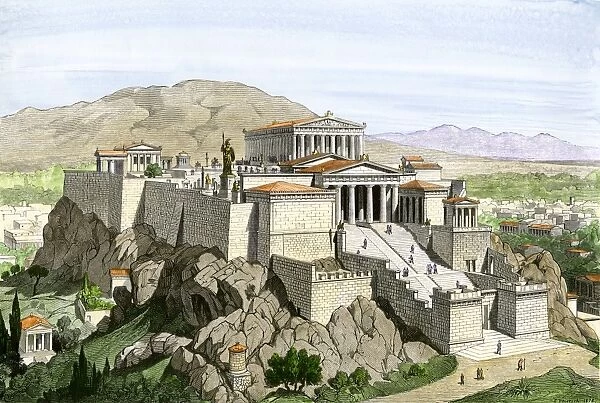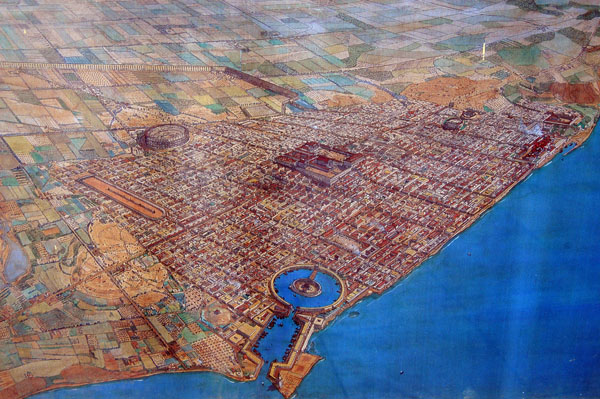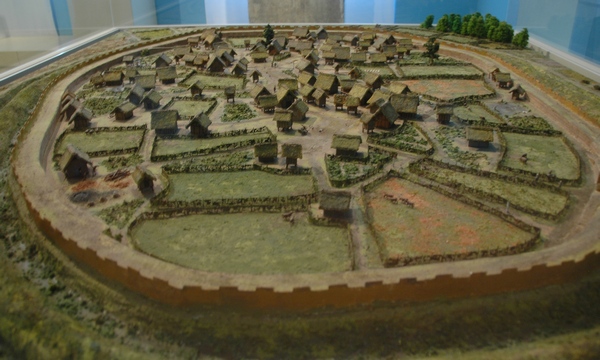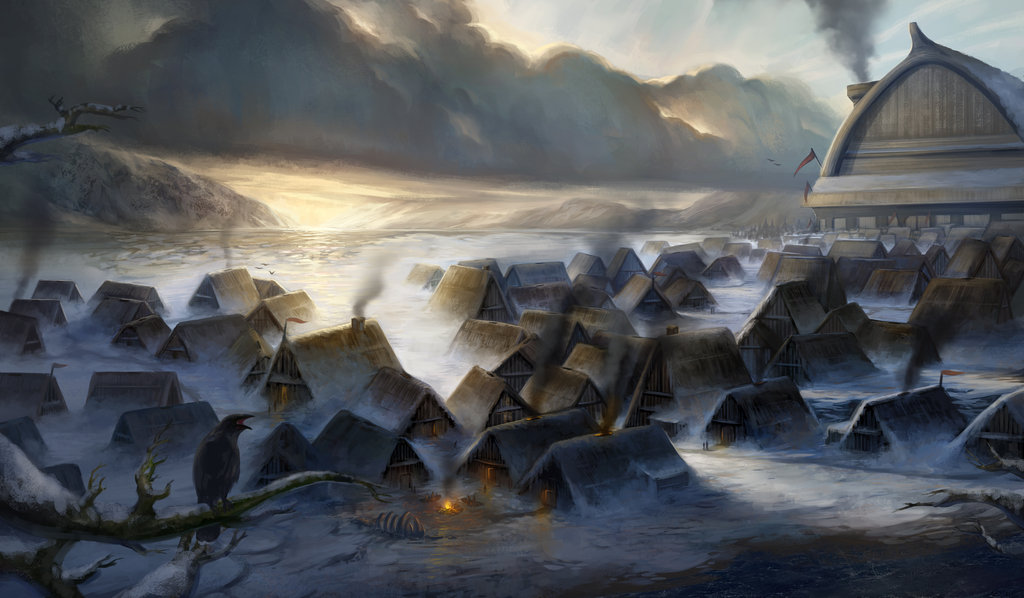A Civilization RP

Introduction
Welcome weary settler! You have arrived! Oh it might not look like much now, no no, with its empty fields, rocky shore and immense forests, parched deserts, treacherous swamps, or high mountains. No, it is not much to look at. Your work will be long, you may not live to see the fruits of your labour, but the sweat, the blood, and the tears you shed will be the seed from which civilizations are grown,a great city, Kingdom, then country. Through the ages, your decedents will flourish. They may not know your name, but rest assured, oh productive one, you will not toil in vain.
Sow the field with crops, build ships to traverse these rocky shores, clear the forests and erect great towers from their ashes, reclaim the land stolen by the desert sands, and drain the swamps of their filth. This is where it will all begin, where you can make your name, where you can truly become a man whose voice echoes through the centuries!
But beware, you are not the only one with eyes on this land. Others may come, men just like you, to take what you have spent your life building. With fire, with steel, they will burn your homes, and murder your family. Build high and strong, oh mighty one, for only the stalwart will build a civilization that will stand the test of time!
Well met friend! Welcome to Rise and Fall: A Civilization RP. Within this RP, we will be exploring an alternate human history. No, not one I have dreamed of nor written in a book, but rather one we write together. In this RP, you will take your settlers and their humble city, and expand them, following hundreds of years of war, trade and exploration until we reach the modern day. This task will be long, but its rewards great. From your hypothetical nations, we will see great powers rise, and fall, and see who really can triumph in a world of shifting loyalties, technology, and interest.
The early start date for this RP will be around 500 BCE. Using this map, will we expand our cities into vast empires. But, how will it all work, you ask. Easy, I say, once you understand it.
The Basics: Your Home City and Stats
When you fill out your application, you will make a series of choices that impact what kind of culture and country you are creating. Depending on its government, religion, and your own tinkering, you can create a martial empire, or a peaceful trading republic. The choice is yours. More information will come later on the application.
You will start your civilization with one major city, your capital, in the home region of your choosing. Your home city is the hub of all of your Civilizations decision making, and until you found a second, you cannot survive if your home city is taken. Your home city is the seat of Government, Culture, Trade and society. This will be integral for your nations future wealth and growth, so choose wisely.
in your Application, you will get +3 points to spend how you wish, but you also must place -2 points in any given category.
There will be seven main areas for you to pump stats into. They are:
Diplomacy: This will effect your ability to discuss things with other nations. The high your diplomacy stat, the further afield you may trade and contact.
Economics: Straightforward. The more points in this stat, the more powerful your economy is. Powerful economies draw in lots of revenue and trade with other nations, but beware, they also make juicy targets for other civilizations.
Culture: A cultured nation is a patron of the arts, and is adept at spreading their influence far and wide. Strong cultures will face an easier time expanding their territory and attracting intelligent and thoughtful citizens.
Religion: The spirituality of your nation is important. Those with strong religion stats are likely to get a boost in population happiness and control, though it may make you a target for those who view you as heathens.
Science: This stat is indicative of how quickly new technologies can be produced. The higher the stat, the more innovative your civilization will be.
Army: Another easy one. The more points in your Army stat, the more effective your soldiers will be, and the larger army you will be able to field.
Navy: A navy is key to many island nations. High naval points will increase the size and power of your fleet, and will help you expand your oversea trading network.
Keeping a good balance of points is on strategy, or you could focus on one area and go for broke!
Expansion and Point Accumulation
Each nation will start out with two adjacent regions as territory's under your control. Each territory you control outside of your homeland will give you .5 of a point to spend, though you must declare where you are going to put this point. As a RP mechanic, this will represent the type of town or colony that you have established in this territory. A territory giving you +.5 army stats for example might be a military fort, while a +.5 economic boost could be a farming village.
After three days of irl time, you will be able to found two new colonies, giving you a total of 1 new stat point and two new regions to build upon. You may only expand into regions you are adjacent to, or share a sea border with.
There are three layers of building, each with different bonuses.
Village: The baseline territorial creation, giving you .5 of one stat depending on its focus.
Town: An intermediary status, towns grant 1 whole point towards their devoted stat. Villages may be upgraded to towns after 1 week of ownership irl.
City: A city is the pinnacle of civilization. Your home city is the accumulation of all your stats together. You may found only 1 city per 10 territories you own. A city is given +3 to any stat.
Choose where to expand wisely. Placing cities far afield may bring conflict down upon you.
Resources and Economics
This is a fairly straightforward thing, as the resources of the Ancient world are well known. Resources and a lands fertility will be determined by their real life history. Therefore, Italy may be wealthy in wine and clay while Britain has better access to lumber and stone.
Be careful where you begin, as unsuitable environments, like the Libyan Desert or Russian arctic, will be almost impossible to build in. Production will be varied. If you desire to sink a massive amount of resources into a monumental temple, that may take up to a week to build. A new farm may be only a day, and some small projects could take mere hours.
The passage of time will be relative, and OP's/Co-Ops will be on hand to straighten out any confusion.
Government Type
There are several different Government types to choose from.
Classical Republic: Similar to the ancients Roman Senate, this system grants +1 point to Economy, +1 point to culture, and +1 point to Diplomacy. It penalizes you with -1 point in Religion, and -1 point in Army.
Autocracy: Rule by one man, be it a King, Dictator, or Lord, this system grants you a bonus of +1 in either Navy OR Army, +1 in Religion, and +1 in Diplomacy. It penalizes you -1 in science, and -1 in culture.
Oligarchy: Ruled by a wealthy elite, Oligarchies gain +1 bonus to Economy, +1 bonus to religion, and +1 bonus to culture. It penalizes you -1 in Navy and -1 in Army.
Direct Democracy: A pure form of Government, Direct Democracy gives you +1 science, +1 culture, and +1 Diplomacy, but penalizes you -1 economy, and -1 to army OR navy.
Theocracy: Blessed by the Gods, Theocracies get a +2 boost to Religion, and a +1 boost to culture, but are penalized -2 in science, and -1 in economy.
Tribal: Ruled by a chief, the Tribe Government grants +1 to Army, +1 to Culture, and +1 to Religion, but penalizes you -1 to Diplomacy, and -1 to Economy.
Once we move on from Classical Antiquity, a move of about 1500 years, so a long time IRL, we will unlock different Government types. You may switch Government types through a Revolution, but Revolutions are deeply damaging to Civilizations, and take several days IRL to sort out.
Culture Type
Different cultures value different things. Thus, they get different stats.
Militarists: Militant cultures will gain +1 to Army OR Navy. They will also fight more effectively.
Pacifists: Pacific Cultures will gain +1 to Culture OR Economy. They will be thriving in both.
Abstract: Abstract cultures gain +1 to Religion OR Science. They turn their minds to the skies in search of answers.
Warfare and Diplomacy
War is inevitable.
Therefore, it will play a major role in this game. War will be left as unregulated by rules or stats as possible, to allow each player the chance to insert their own flavour into their Nations army or navy, and focus it on the many different techniques, strategies, and equipment used during War.
War is also, however, brutal. If your nation is a peaceful trading hub but is attacked by your militaristic neighbour, you will likely lose. Dying, losing, and either starting again or serving your new masters is key to having this game work. In order to make this as easy for everyone involved, it is recommended that players discuss war before role playing it out. Try to come to a rational, unbiased assessment of what the outcome would be, and execute it. If no logical outcome can be agreed to by the interest Parties, the OP team will work out a compromise.
The size and effectiveness of your military will be determined by your Army and Navy scores. That being said, poor leadership can prove fatal even to the most powerful of armies.
As important as War can be, Diplomacy may be even more so. Nations with strong diplomatic scores will be able to reach further with their messengers and contact far off civilizations. Therefore, if you have a high diplomacy score, you may be able to from an alliance with a nation halfway around the world. Poor diplomacy scores will result in isolationism for your people. Diplomacy may occur over Telegram, but the final deal and the events leading up to it must be written in the IC thread. Remember, however, that all diplomacy is based on good will, and some treacherous civilizations may break their word.
Religion
You will be allowed to create your own God/Goddess. They will give you bonuses that you can customize! Be careful though, as OP's will not look kindly upon omnipotent rivals. Your Deity should only get a bonus in two areas, limited to one point. Or, if you prefer, one area, giving two points.
Nations with strong religions scores may be able to update their Gods later, and will find it easier to sow unrest among groups with other deities.
Science
Scientific discovery will be a slow and steady process in this Game. Those nations with higher science scores will have the first crack at new tech. All nations will have access to any tech when that tech is known by 3/4s of all nations. Nations you trade with may seep some tech to you, by osmosis.
Fill out both applications. One will be the raw data we judge your nation by, one will be the extra spice and personalized stories you add to it.
- Code: Select all
The Application (Stats and Data)
Nation Name:
Capital City Name:
Capital City Defenses: (Higher Army or Navy scores=strong defenses, like stone walls.)
Starting Region: (Link Map)
Starting Colonies: (Link Map)
Culture Type:
Government Type:
Religion:
Resources:
Stats: [i]Diplomacy:[/i]
[i]Economy:[/i]
[i]Culture:[/i]
[i]Religion:[/i]
[i]Science:[/i]
[i]Army:[/i]
[i]Navy:[/i]
- Code: Select all
The Application (Roleplaying Aspects)
Nation Name:
Capital City Name:
Image of City: (If you can find a good analogue)
Capital City Decription:
Name and Title of Leader:
Description of Cultural Practices:
Description of Political System:
Description of Army and Navy:
Description of Economy:
Description of Religion:
Description of Worldview:
Thank your for reading this OP, it took forever for me to design it so I hope it piques your interest! It is quite clear that, if you are applying, you have an understanding of this sites rules. Please keep to them, and lets have some fun!
Similarly, this is my first Civilization style RP, so if there is anything here you desire to improve or change, TG me, I am open to suggestions!










